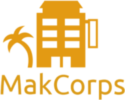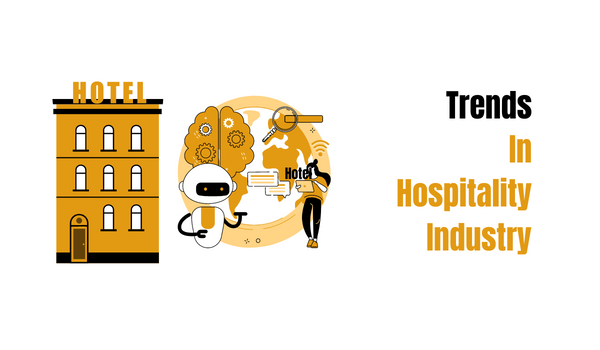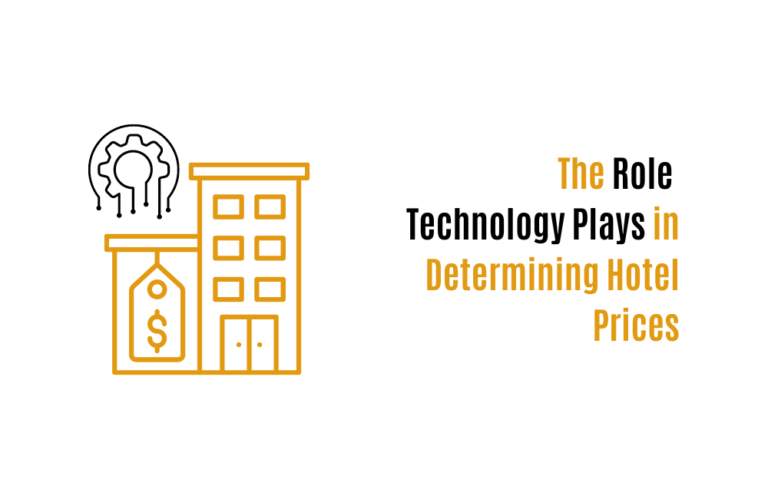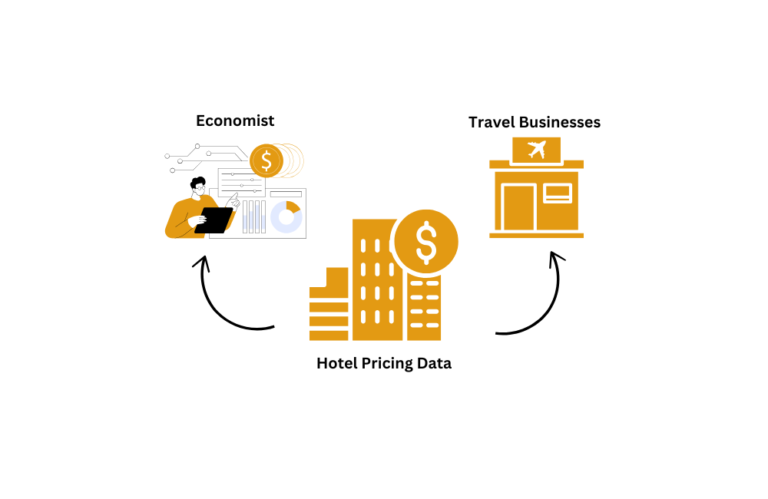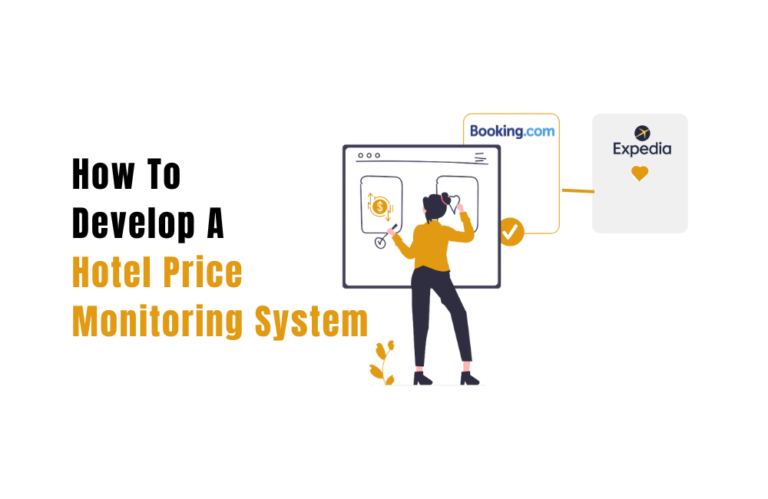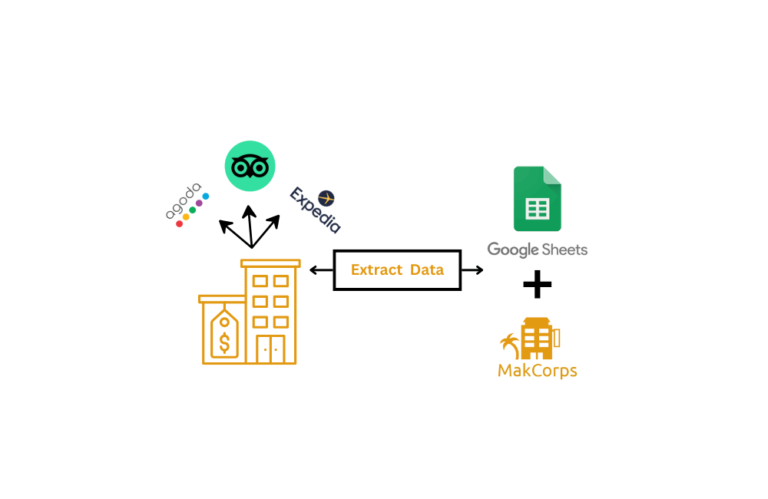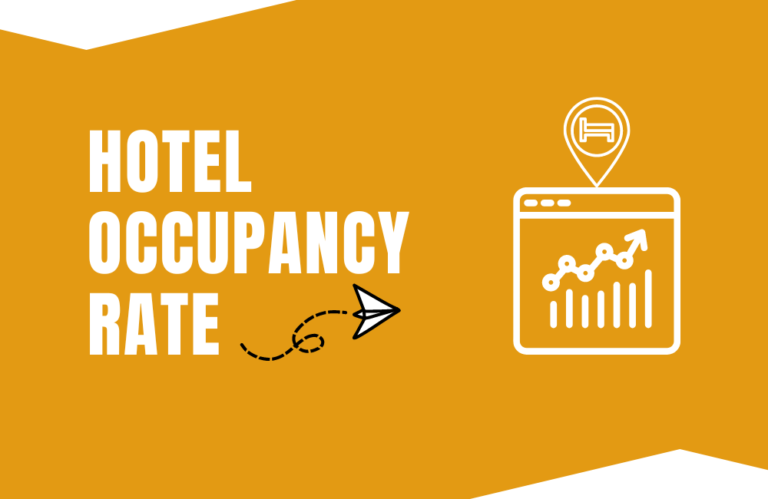15 Technology Trends in Hotel Industry in 2025 & Beyond
The pandemic reshaped hospitality, forever changing guest expectations. This shift presents a massive opportunity for hoteliers and online travel agencies (OTAs). According to Statistica, over 50% of travelers now prioritize contactless check-ins and check-outs and demand contactless payments. These preferences are not just a trend but have become standards for guest satisfaction and loyalty.
The right innovations can elevate your property or platform to the forefront of the industry, from streamlining operations to delivering hyper-personalized experiences.
Whether you’re a hotelier looking to boost efficiency or an OTA aiming to capture traveler demand, these insights will guide you toward smarter strategies and better outcomes.
Let’s explore the top technology trends for the hotel industry that are redefining the way we serve and delight modern travelers.
Trend 1: Data-Driven Marketing

Businesses that use data-driven strategies drive five to eight times as much ROI as those that don’t. That’s why data-driven hotel marketing is a rising trend, playing a crucial role in every step of the guest journey—from attracting customers to booking your hotel to leaving them with an exceptional experience.
Imagine a potential customer searching for hotel rates on different websites. They compare prices and look for the best deal.
As a hotel owner, you can use Makcorps hotel price API to monitor real-time and historical pricing data from 200+ OTAs and hotel chains.
By using this tool, you can show your marketing campaigns with the best affordable price to the customer and secure the booking.
Makcorps not only allows you to find out your competitor’s current hotel pricing, but it also helps you create hotel price forecasts to help you be a few steps ahead of your fellow competitors with the help of data analytics.
If this wouldn’t lead to skyrocketing your hotel revenue then, what will?
Therefore, we have covered you with a video to learn more about Makcorps Hotel Price API and how it works. Watch it!
In addition to the pricing data, using data analytics with different hotel APIs you can gain insights into customer behavior, preferences, and interests, and make more informed decisions to make your marketing campaigns super effective.
Trend 2: Increase Efficiency with Property Management Software

In complex businesses like hotel, and therefore seamless operation is the key to success. As hoteliers grapple with numerous tasks from reservations, invoicing, and maintenance management to customer service property management software is a must to invest in.
This software serves as a centralized system that organizes, schedules, and simplifies tasks, enabling hoteliers to manage their properties with less effort and more efficiency.
Trend 3: Technology for Enhanced Guest Experience

Let me tell you a story about Jane, a tech-savvy traveler who recently stayed at a hotel that had fully embraced cutting-edge technology. The moment she walked into her room, she could control the lighting, temperature, and entertainment system through her smartphone. The hotel even offered virtual reality tours of local attractions.
By integrating technology into every aspect of the guest experience, hotels can create memorable, personalized experiences that keep travelers like Jane coming back. Additionally, technology can improve operational efficiency and reduce costs, which results in a win-win for both guests and hoteliers.
This is a prime example of how hotel technology trends like smart devices and automation are elevating the guest experience.
Trend 4: Data-Driven Personalization

Data-driven personalization is transforming guest experiences and helping hotels to deliver tailored stays that drive satisfaction and loyalty. By collecting and analyzing guest data like booking history, past preferences, and feedback hotels can anticipate needs and elevate service to a new level.
Picture this: a guest walks into their room to find it just as they like it. The temperature is preset, their preferred pillow awaits on the bed, and the minibar is stocked with their favorite snacks. Such thoughtful touches make guests feel valued and understood.
Data-driven personalization is one of the most important hospitality technology trends that many businesses are already using to create strategies to boost loyalty and increase revenue. Because, happy guests return, spread the word, and enhance your bottom line. Are you ready to make personalization your competitive edge?
Trend 5: Artificial Intelligence and Chatbots

AI is a major hospitality tech trend that is transforming customer service like never before. AI chatbots are now the go-to solution for handling routine inquiries, offering instant responses that improve guest satisfaction, and freeing up hotel staff for more personalized tasks.
Take this example: a guest wondering about check-out time can simply ask the hotel’s AI chatbot through an app or website. In seconds, they get their answer—no calls, no waiting. According to Hotel Guest Technology Report 2024, 70% of guests find chatbots helpful for simple inquiries, like asking for the Wi-Fi password, scheduling wake-up calls, or checking facility hours.
But it doesn’t stop there. The report also revealed that 58% of guests believe AI enhances their hotel booking and stay experience. While guests still prefer human interaction for complex requests, chatbots streamline operations and create a frictionless experience for simpler tasks.
A few will argue that AI is replacing human touch, but in reality it’s just enhancing it and helping hotels to deliver faster responses while focusing on what matters most for building lasting guest relationships.
Trend 6: Mobile Payments and Digital Wallets

As cash becomes less common, digital trends in the hospitality industry are becoming more popular such as mobile payment systems and digital wallets. These solutions provide a seamless and secure payment experience for guests.
Imagine offering your guests the ability to check out with just a few taps on their smartphone—quick, simple, and hassle-free!
This will not only enhance convenience for guests but also streamlines the payment process for hotels. It reduces the risk of errors and simplifying financial management.
Trend 7: Smart Hotel Rooms
Smart hotel rooms, equipped with Internet of Things (IoT) devices, are transforming guest experiences by offering enhanced control and personalization. Guests can adjust room temperature, lighting, and entertainment systems through in-room tablets or smartphones, leading to increased satisfaction and comfort.
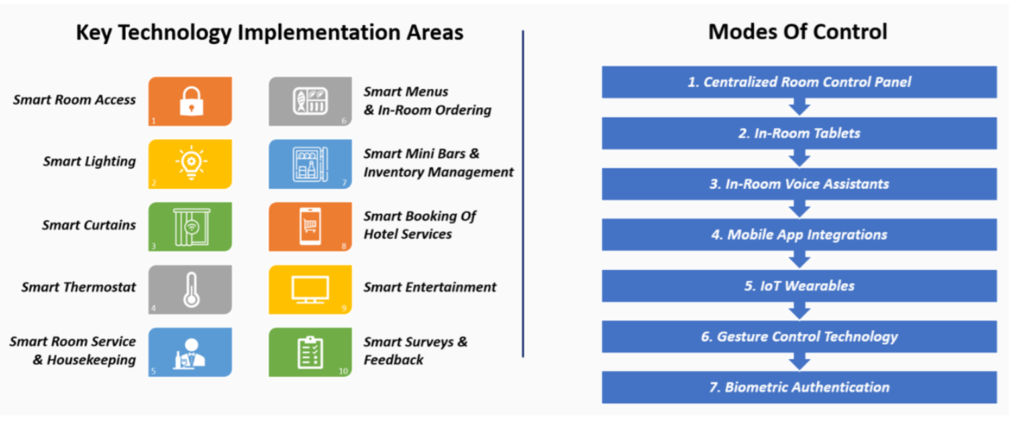
Plus, the integration of biometric technologies, such as facial recognition and fingerprint scans, further streamlines the guest experience by enabling seamless check-ins and secure access to rooms and amenities. This adoption is on the rise, with the global biometrics market projected to reach $59.31 billion by 2025.
Apart from that, implementing in-room hospitality technology trends such as smart technologies also benefit hotels operationally. IoT-enabled systems can optimize energy usage by adjusting lighting and climate control based on occupancy, which helps cost savings and reduces environmental impact. This approach not only enhances guest satisfaction but also promotes sustainability which aligns with the growing demand for eco-friendly accommodations.
Trend 8: Voice Technology
Voice technology is revolutionizing the hotel industry, and it’s a must-have for any business eager to thrive.
According to Angie Hospitality’s Voice Trends Technology Report, 50% of hoteliers think, voice technology can increase revenue and reduce labour cost significantly.

Integrating voice technology can significantly enhance guest experience and drive revenue.
Voice assistants like Angie are transforming hotel rooms into smart spaces where guests can control lighting, temperature, and entertainment, simply by speaking.
Imagine a guest checking in and saying, “Turn on the lights” or “Set the thermostat to 72 degrees.” This level of convenience enhances satisfaction, encourages longer stays, and drives repeat bookings.
Apart from that, voice technology streamlines operations, reduces the burden on staff, and allows them to focus on personalized guest services. This efficiency translates to cost savings and higher revenue. By implementing voice technology in your hotel you will not only just keep up with but also set new standards for guest experiences and profitability.
Trend 9: Software For Revenue Management and Dynamic Pricing

The hospitality industry has transformed with the emergence of hotel revenue management tools and dynamic pricing software. These powerful tools help hoteliers optimize room rates, predict demand, and maximize profits by analyzing market trends and customer behavior.
Consequently, hotel owners can make data-driven decisions, increasing occupancy and revenue. If you’re a hotelier aiming to stay competitive, don’t miss out on these game-changing solutions.
Trend 10: Contactless Check-in and Check-out

Contactless check-in is no longer a pandemic workaround—it’s a cornerstone of modern hospitality. This technology allows guests to check in, access their rooms, and settle payments without ever stepping up to the front desk. According to a recent Survey By Oracle, with over 35% of consumers asking for contactless payment options and 26% seeking digital room keys, it’s clear that these solutions are here to stay.
Powered by integrations with property management systems (PMS), contactless check-in automates the process from start to finish. Guests can complete pre-arrival formalities, including digital authorizations and payment processing, from their smartphones. This not only saves time but also enhances safety and convenience by minimizing physical interactions.
Hotels embracing contactless solutions are seeing measurable benefits. According to a survey done by Openkey, keyless entry improves guest satisfaction scores by an average of 7%, while satisfaction drops by 50% when there’s just a five-minute wait at check-in. Moreover, mobile check-in provides opportunities for upselling, such as promoting on-site amenities and personalized upgrades through pre-arrival communications.
From virtual credit card authorizations to mobile keys, contactless check-in creates a seamless and hygienic experience that benefits the guests and hoteliers.
Trend 11: Enhanced In-Room Entertainment With Virtual Reality

What if you could tour a hotel’s luxurious suites, expansive event spaces, or serene spa without leaving your home? Virtual reality (VR) is making that possible. It offers guests an immersive glimpse of what awaits them. According to a 2022 survey, nearly 34% of respondents were eager to use VR or metaverse experiences to explore hotel facilities before booking, with only 6% showing no interest.
Hotels are already experimenting with this innovative technology. For instance, Marriott International introduced its “VRoom Service,” which allows guests to request VR headsets during their stay to embark on virtual adventures or explore destinations worldwide. While in-room VR entertainment is still a niche offering, virtual hotel tours are rapidly gaining traction and transforming the pre-booking experience.
For hotels, VR is a strategic way to enhance marketing efforts and build booking confidence. By enabling guests to visualize their stay, properties can showcase amenities and create deeper connections that pave the way for upselling opportunities and unforgettable first impressions. To bring more guests to your hotel and get them to share their experiences on social media, introducing virtual reality is the next big step you can implement in your hotel.
Trend 12: Renewable Energy

The hospitality industry is increasingly adopting renewable energy solutions to meet sustainability goals and reduce operational costs. For instance, the Svart Hotel in Norway aims to be the world’s first energy-positive hotel that will generate more energy than it consumes through solar panels and geothermal wells.
This shift towards renewable energy is not only environmentally responsible but also financially beneficial. According to the International Renewable Energy Agency (IRENA), renewable energy technologies are becoming more cost-competitive with fossil fuels which makes them a viable option for hotels worldwide.
By integrating renewable energy sources such as solar and wind power, hotels can significantly reduce their carbon footprint while offering guests eco-friendly accommodations. This commitment to sustainability enhances brand reputation and appeals to environmentally conscious travelers and the way for a greener future in hospitality.
Trend 13: Video Marketing

In hotel industry trends, video marketing goes far beyond explainer videos. In fact, video marketing has become a powerful way to boost guest engagement and drive bookings.
Testimonial videos featuring real guest stories add credibility and build trust. Behind-the-scenes content creates an emotional connection by offering an inside look at your hotel’s operations. Seasonal promotions or event videos keep your audience informed and excited about your offerings.
Here’s why it works: guests are 67% more likely to book when a video tour is available, and 80% of users prefer watching a video over reading text with the same content. Video marketing isn’t just engaging but highly persuasive. (source)
If you’re looking to harness this potential without overspending, check out these free video editing software that offers a cost-effective way to create captivating, professional-quality videos.
Trend 14: Blockchain For Loyalty Programs

Blockchain is a new hotel technology trend that is transforming hotel loyalty programs by enhancing security, transparency, and flexibility. Traditional loyalty schemes often suffer from complexities and limited interoperability, causes customer dissatisfaction.
By leveraging blockchain, hotels can issue digital tokens as loyalty points that enable guests to seamlessly earn and redeem rewards across various properties and services. This decentralized approach not only simplifies the process but also reduces the risk of fraud, as each transaction is securely recorded on the blockchain.
Moreover, the transparency inherent in blockchain fosters greater trust between hotels and their guests, potentially increasing customer retention and satisfaction.
Trend 15: Robotics in Hospitality

If you’re looking for the latest trends in the hotel industry that delight guests, boost efficiency, and reduce costs, Robotics is the key to transforming your operations.
Hotels like YOTEL NYC, with its luggage-handling “YOBOT,” are already reaping these benefits.
Robots are expensive but if you have the budget they could be a strategic investment that reaps incredible ROI.
Besides handling luggage, robots can do impeccable cleaning and many guests prefer minimal human interaction during their stay.
No wonder, the global hospitality robots market is expected to grow at a 12.13% CAGR between 2022 and 2027.
For hoteliers robotics technology offers streamlined operations, unique guest experiences, and a competitive edge. By blending human touch with robotic efficiency, hotels can deliver service that’s innovative, memorable, and future-ready.
Conclusion
Hoteliers must embrace the top 15 technology trends in hospitality to boost efficiency and guest experiences. Where integrating AI, IoT, and virtual reality creates unforgettable stays, setting your hotel apart on the other hand technologies like data analytics, revenue, and dynamic pricing software help hotel business to boost their revenue to a whole new level.
Don’t fear the change; seize this opportunity to revolutionize the industry, and watch your business rise to the top. Learn more about the role of technology in the hotel industry to stay ahead of the curve. The future is here and the rewards are undeniable.
So, adopt these latest technology trends in hospitality and excel at not only providing the best customer experience but also exponential revenue generation.
